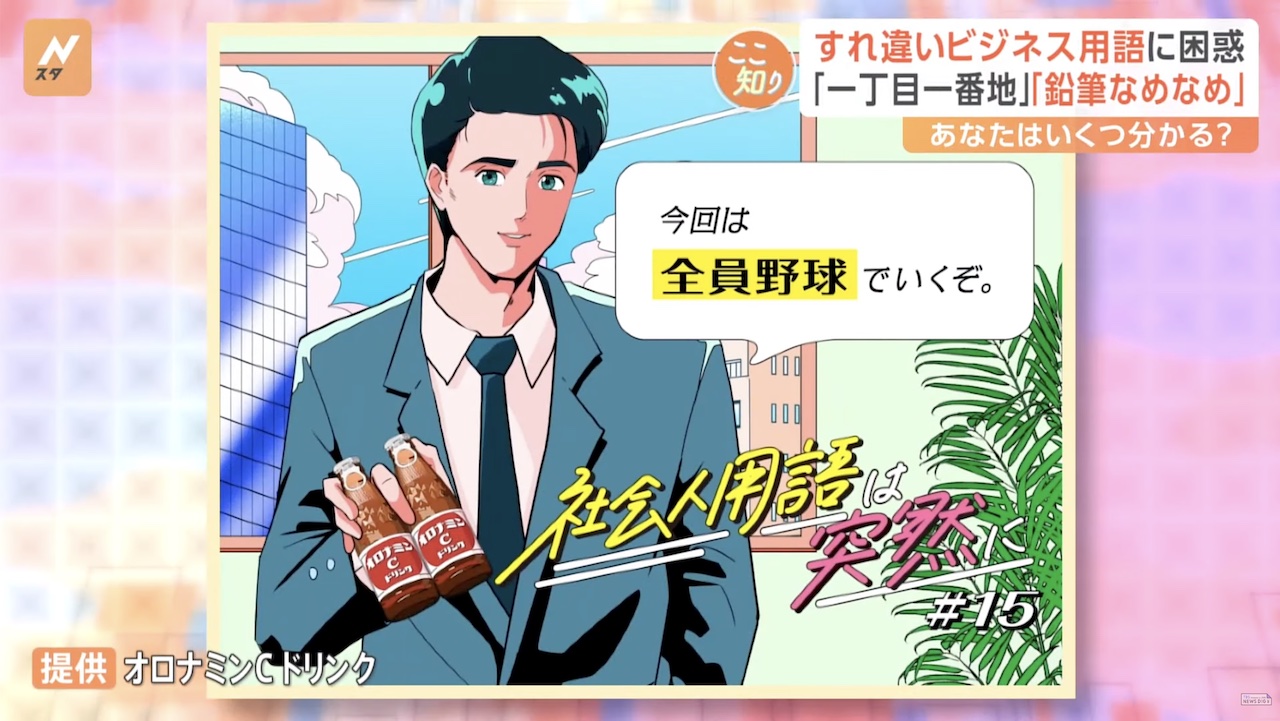TOKYO, Oct 14 (News On Japan) - A ranking of business terms that are often misunderstood by younger employees has sparked discussion. Are you using phrases that might not be understood by the younger generation without even realizing it?
Otsuka Pharmaceutical conducted a survey in August 2024 with 600 working adults across Japan to investigate the communication gap between different generations. The results were announced on September 25th.
The survey ranked the terms that cause misunderstandings or are unfamiliar during conversations between workers in their 20s and those aged 40 and older.
Top 10 Misunderstood Business Terms
1. Ichome Ichiban-chi
2. Yoshinani
3. Empitsu Name-name
4. Negoru
4. Tebento
6. Zenin Yakyu
7. Tereko
8. Marumeru
9. Garagara Pon
10. Ittekoi
In the survey about generational gaps in business jargon, 86% of younger employees in their 20s reported encountering terms they didn’t understand, while 75.5% of older workers over 40 said they had experienced cases where their words weren’t understood by their juniors.
It seems that both groups are aware of the communication gap.
Female in her 30s: “When I first started working, I was shocked when someone said ‘Empitsu Name-name.’ The term sounds uncomfortable, and we don’t even use pencils anymore, let alone lick them.”
Male in his 20s: “In the company I work at, where most of the staff are older, phrases like ‘Leave it to the Garapon’ are commonplace.”
When I first became a working adult, the phrase “Jingi o Kiru” was frequently used. Even after transferring to TBS, people there would say, “Aren’t you going to cut the jingi?” so I assume it’s media jargon.
Mihyun Song: When I came to Tokyo, I couldn’t always tell whether the words didn’t make sense because of a generational gap or because they were regional dialects.
According to a survey by Shogakukan’s Kufura, people in their 30s and 40s also listed words they used in their youth but now consider obsolete.
Obsolete Terms for People in Their 30s
- Gettsu!!
- Naruhaya
- Don-dake
- Maji
- Super Angry
- KY (Can’t Read the Room)
- Sha-me
- Choi-waru
- Naruheso
- Datchuuno
- Sunmason
- Super ______ (e.g., Super Cool)
Obsolete Terms for People in Their 40s
- Choberigu
- Mochi no Ron
- Nau-i
- Owa-kon
- Akeome Kotoyoro
- Yatte Miso
- Gap Moe
- Yokkoisho Ich
- Wakarame
- Safe Bet
- Mengomengo
- Riajuu (Living the Good Life)
Source: TBS
















